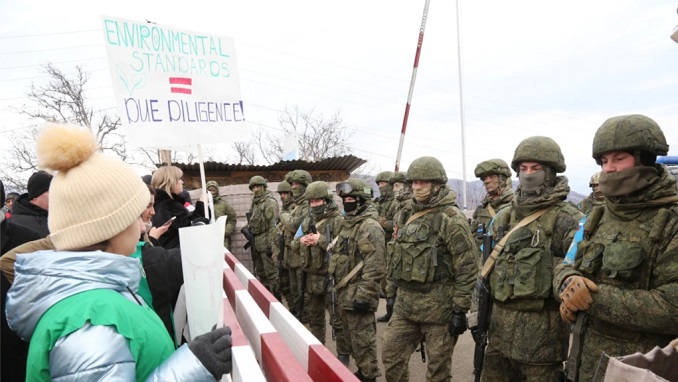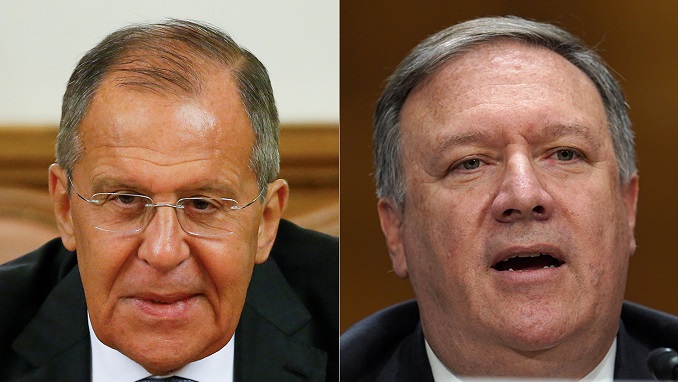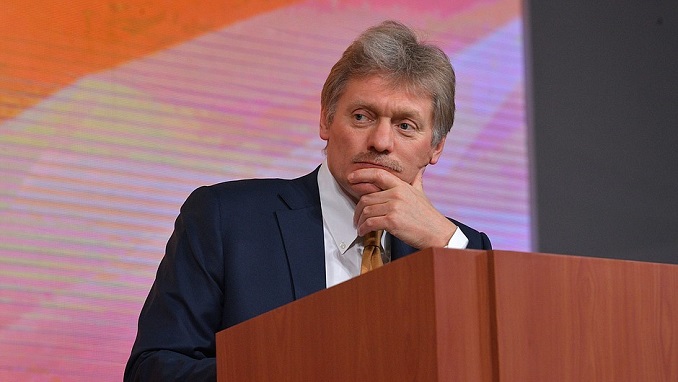The access to the sole road connecting Nagorno-Karabakh to Armenia has been blocked for tens of thousands of people for nearly two weeks, renewing tensions between the longtime rivals Armenia and Azerbaijan and sparking concerns of a humanitarian crisis, and worries of renewed conflict.
The road in the Lachin Corridor has been blocked since December 12 by dozens of Azerbaijani “eco-activists,” allegedly protesting what they claim is an illegal exploitation of mineral resources – including gold – by Yerevan as well as the environmental impact on the surrounding area.
One day after the road was blocked, the natural gas shipments through a pipeline from Armenia that runs to Nagorno-Karabakh through Azerbaijani-held areas also stopped on December 13, prompting the de facto authorities to close schools due to the cold weather.
Gas deliveries were restored three days later, and the Azerbaijani state gas company claimed that Baku had nothing to do with the shipping issue.
The blocking has led to several tense standoffs between the protesting Azerbaijanis and Russian troops stationed in the region as part of the 2020 peace deal.
Noting that spontaneous protests are routinely dispersed quickly by Azerbaijan police, Armenians are accusing Baku of staging them to put pressure on Karabakh Armenians and Yerevan.
Armenian Prime Minister Nikol Pashinian stressed on December 22 that the continued blocking of the road had led to a worsening humanitarian situation in Nagorno-Karabakh, and his appeal was also reiterated by b Human Rights Watch, underscoring that the blocking of the Lachin Corridor had disrupted access to essential goods and services for tens of thousands of ethnic Armenians living in the area.
Hugh Williamson, Europe, and Central Asia director at Human Rights Watch, warned that a prolonged blocking of the only road connecting Nagorno-Karabakh to the outside would result in dire humanitarian consequences.
The blocking of the Lachin Corridor was discussed at the UN Security Council on December 20, when the US, France, Britain, Russia, and other countries urged Azerbaijan to reopen the road.
Appealing for intensified diplomatic efforts aimed at achieving a lasting peaceful settlement between Armenia and Azerbaijan before it is too late, UN Assistant Secretary-General for Political Affairs Miroslav Jenca underscored that a renewed conflict would likely impact the wider South Caucasus region and beyond.



